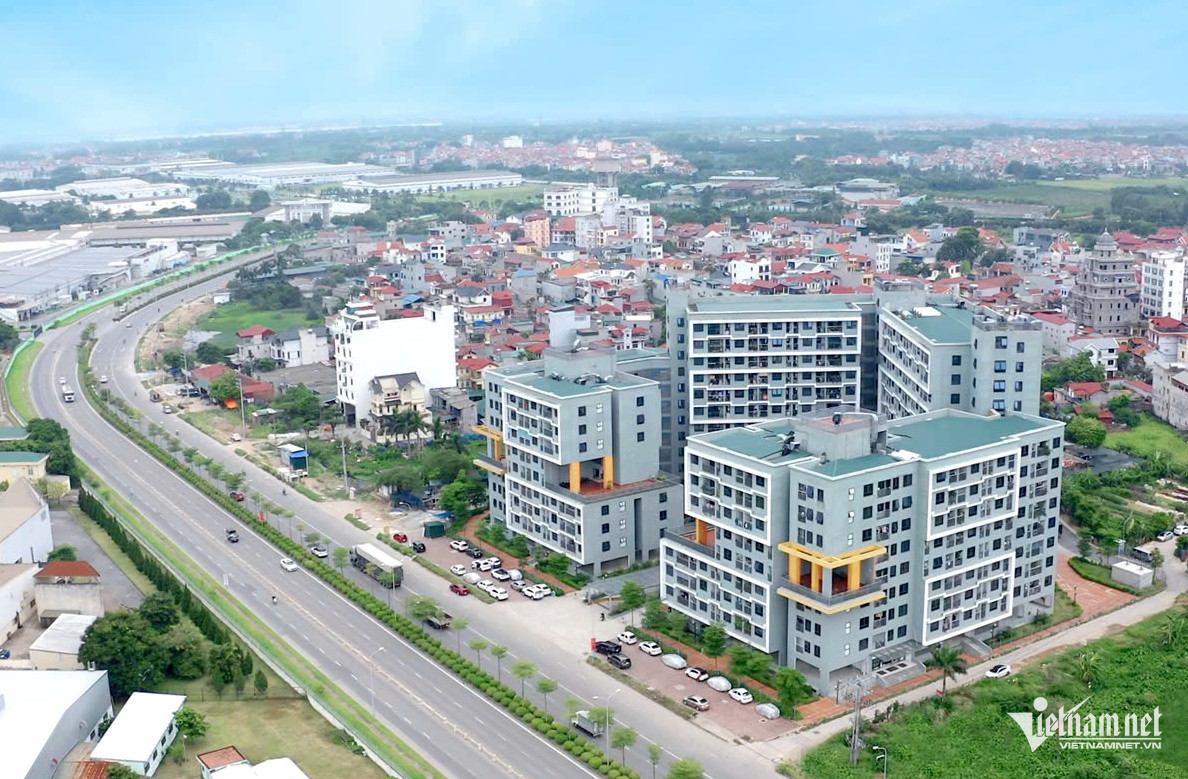
The National Housing Fund will be a state-owned financial institution operating outside the national budget framework, structured as a state-owned enterprise with 100% charter capital held by the government.
The initial charter capital, funded by the central budget, will be no less than $197 million and will be increased to at least $394 million within three years.
The Ministry of Construction is currently soliciting feedback from relevant ministries and sectors before submitting a draft decree on the National Housing Fund to the government.
According to the proposal, the National Housing Fund will comprise a Central Housing Fund managed by the Ministry of Construction and Local Housing Funds managed by provincial Departments of Construction.
The central government will establish the Central Housing Fund and appoint the Ministry of Construction as the owner’s representative. The director of the Central Housing Fund will be appointed by the Ministry.
At the local level, People’s Committees of provinces and cities will establish Local Housing Funds and act as the owners’ representatives. Provincial-level professional agencies will manage these funds, with the fund directors appointed by the respective provincial chairpersons.
The Ministry of Construction proposes that the National Housing Fund be a non-budgetary state financial institution operating under a state-owned enterprise model, with the government retaining 100% ownership.
Additionally, the National Housing Fund will be eligible to receive voluntary contributions from organizations and individuals.
The fund will have legal status, be allocated operational funds from the state budget, possess its own seal, and be allowed to open accounts at the State Treasury and commercial banks in accordance with legal regulations.
Regarding funding sources, the Ministry proposes that the Central Housing Fund be formed from state equity capital, voluntary contributions from domestic and international organizations and individuals, and other legally mobilized sources.
Specifically, the central budget will allocate an initial charter capital of at least $197 million upon establishment, with plans to increase this to at least $394 million within three years.
In addition, the Central Housing Fund will be allowed to retain revenue from the sale of public housing assets managed by central authorities, utilize capital from fund operations, and incorporate other state-owned capital to supplement its operational budget.
For Local Housing Funds, the charter capital will be allocated and supplemented by local budgets upon approval from provincial People’s Councils.
Local Housing Funds may collect amounts equivalent to the value of land funds designated for social housing development. These contributions will come from investors of commercial housing and urban projects fulfilling their legal social housing obligations.
They may also receive proceeds from sales of public housing assets managed locally, funds from land use rights auctions under National Assembly Resolution No. 201/2025/QH15 on pilot mechanisms for social housing development, and additional capital from the operations of the local housing funds.
Who is eligible to rent housing?
According to the Ministry of Construction, the National Housing Fund aims to invest in the construction and management of independent social housing projects, including those with fully integrated technical and social infrastructure, for rental purposes.
The fund will also manage public housing through the conversion of centrally managed public assets into rental housing, as stipulated by housing regulations, or accept housing transferred by local governments. Additionally, the fund may purchase social housing built by private investors for leasing.
The fund will further manage and operate housing purchased from the commercial sector, to lease to public officials, civil servants, government employees, and workers in state agencies, political organizations, socio-political organizations, and public service units.
Regarding investment principles, the Ministry proposes that independent social housing projects be completed within five years, while projects with integrated infrastructure be finalized within seven years.
Beneficiaries eligible to rent social housing developed by the fund include those entitled to social housing support under current housing legislation.
This group also includes government officials, civil servants, public employees, and workers.
Hong Khanh